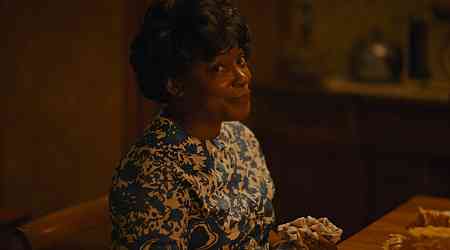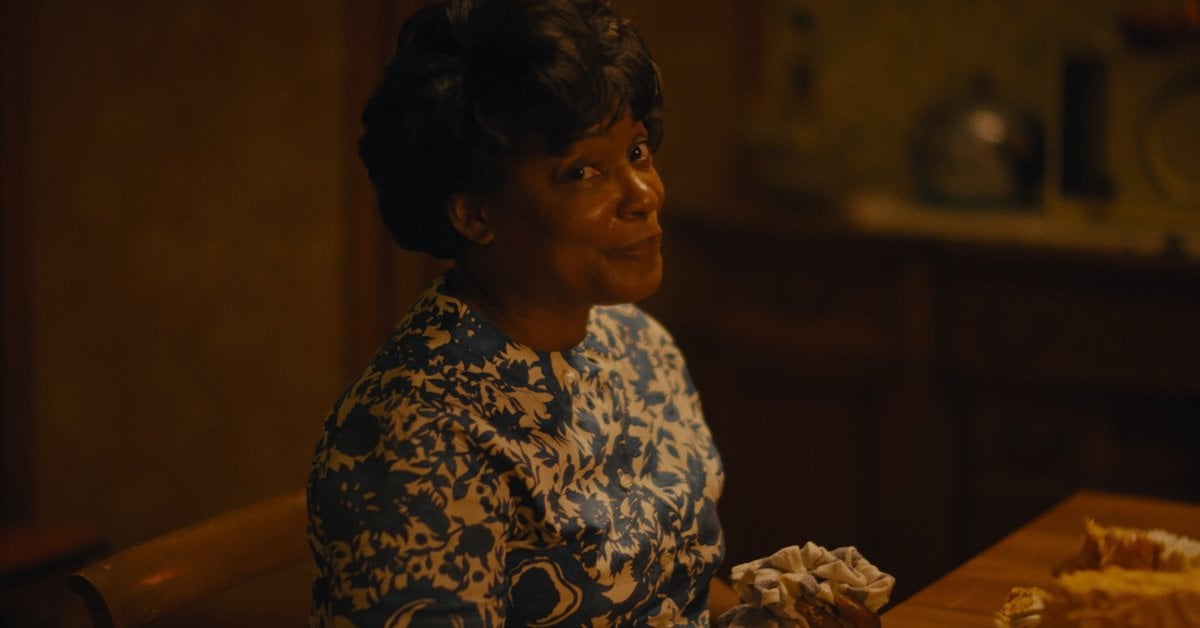
People who care about movies always say they want filmmakers to take chances, to show them something they’ve never seen before, or at least open their eyes to a new way of seeing. The latter is exactly what RaMell Ross does with his second feature Nickel Boys. Adapted from Colson Whitehead’s affecting, elegantly written novel about two young men struggling to stay afloat at a brutal reform school, Ross’ movie may not open a door to a whole new kind of filmmaking—Terrence Malick, for one, has experimented with a similar painted-from-memory approach. But it does jolt us into new ways of seeing, and new ways of thinking about what a movie can be. Nickel Boys isn’t wholly successful: Ross’ consciously radical approach ends up blocking some of the power of this harrowing story—there are lots of places where you see filmmaking at the expense of people. But movies don’t have to live in a tightly circumscribed universe; in fact, they’ll die if they do. Nickel Boys is a picture on the move, a work that’s traveling forward, the thing we always ask for yet often don’t know how to accept when it arrives.
[time-brightcove not-tgx=”true”]Ethan Herisse plays Elwood, a bright young kid growing up in 1960s Florida. He shows nothing but promise. Thanks to an encouraging teacher, played by Jimmie Fails, he’s on his way to a good technical college that will cost him nothing. He’s galvanized by the Civil Rights Movement, eager to engage in protests that he believes will change the world. And you understand exactly why Elwood is the way he is as you learn more about the woman who has raised him, his grandmother Hattie, played, superbly, by Aunjanue Ellis-Taylor. Hattie works as a hotel housekeeper. She’s stable and generous and grounding; under her care, Elwood has known nothing but love. As a woman who’s spent her whole life in the Jim Crow South, she knows Elwood and others like him are the future, even as she fears for her grandson’s safety.

Those fears aren’t unfounded. Elwood is arrested for nothing more than being in the wrong place at the wrong time—heading to his new school for the first time, he unwittingly hitches a ride in a stolen car. Before long he’s been dumped in the back of a police car, making the jostly trek to a segregated reform school known as Nickel Academy. Early on, he clocks the tough kids, the bullies who resent him for his good manners and obvious intelligence. But he does make one true friend, Brandon Wilson’s Turner, who clues him in to the hidden horrors of the place. Meanwhile, though, the immediate horrors are right there for him to see: on his first day, he attends an orientation led by a ballbuster creep who informs the boys—they range in age from possibly as young as 9 or 10 to 18—that if they do as they’re told and follow every impossible step on the facility’s dictatorial self-improvement plan, they’ll get to go home to their families—“if they’ll still have you.” What really awaits them are horrifying beatings—and worse—at the hands of sadistic staff. Nickel Boys tells the story of how Elwood maintains his sense of self in the face of these atrocities, and of how he escapes—or doesn’t.
That’s the barest plot outline of Nickel Boys, but Ross doesn’t tell the story in a conventional way. Largely, we see the story from Elwood’s point of view, not just as if we were walking alongside him, but as if we were one with him. This means we rarely see his face directly: occasionally, it’s reflected vaguely in a shiny surface, or we might see a photo-booth picture of him, pre-arrest, having fun on a date. Occasionally the point of view shifts, and we see Elwood through Turner’s eyes. The device is effective precisely because it’s a little disorienting; it’s exciting, at first, to keep pace with Ross’ visual ideas. The movie is constructed like a visual scrap quilt made in a meticulous and orderly fashion, sometimes focusing on Elwood’s life in the ’60s and other times flashing forward to the near-present day. Sometimes we know exactly what we’re looking at: when you’ve seen one drab institutional cafeteria, you’ve seen them all. But Ross’ approach is generally more conceptual. We don’t directly see the room where the beatings take place, but we get a metallic, blurry sense of its nightmare spirit. An ungodly droning sound barely drowns out the screams coming from within—they’re like ghost sounds, things you can’t be sure you’re hearing, and wish you weren’t.
Ross has a background in fine arts, as a photographer. His first film was the inventive, sensitively shot 2018 documentary Hale County This Morning, This Evening, a kind of tapestry film capturing bits of the lives of Black Americans living in Alabama. Nickel Boys is an even more ambitious project, though its risks only partially pay off. As Elwood’s suffering at Nickel intensifies, the film seems to become more and more metaphysical. In some ways, that’s a relief: Ross’ artistically careful filmmaking provides a refuge from all the suffering, a kind of translucent scrim that shields us from the worst. But it’s hard to be sure that’s a good thing. Movies that insist on drilling into human pain can become sadistic by themselves. Ross has clearly taken great care not to make that kind of movie: He’s an empathetic filmmaker, with an eye attuned to the beauty of muted sunlight, of the up-close sparkle of a golden bracelet, of human skin. (The cinematographer here is Jomo Fray.) But Ross’ methods also make his movie a little too remote at times. You can appreciate what he’s showing you, even as you might feel you’re seeing it all from a safe remove.

What’s more, this isn’t the kind of filmmaking that showcases actors: you might come away, for instance, with the sense that Herisse has done some wonderful work in bringing Elwood to life, even if you can’t pinpoint exactly how. Yet Ellis-Taylor, as Hattie, is undimmable. When Hattie learns that her grandson has been hospitalized at Nickel—he’s been badly beaten by the thugs in charge, though of course she isn’t told that—she puts on an impeccably businesslike ensemble and attempts to visit him, only to be turned away by the authorities. We don’t see any of that: what Ross does show us is the immediate aftermath, as she stands helplessly on the school’s grounds, not sure what to do next. We see her through Turner’s eyes. She’s looking for someone who might know her grandson, who might have some news of him; she also has a parcel for him. She catches Turner’s eye. Might he pass along her little package?
What we see in her face—what Turner sees—is a woman not seeking kindness in a hard, bitter world, but eager to dole it out. How does an actor convey this kind of go-for-broke generosity, a quality as elusive as a cloud floating across the sky? Ellis-Taylor captures it lightly in her arms and brings it down to earth for us, and for Turner. Whenever she’s onscreen, even the movie’s intentional abstractions feel immediate and vital. Nickel Boys is the kind of demanding, inventive movie we often wish for, only to find we don’t know fully know how to respond when we do. But Ellis-Taylor? What her face tells us is clear as day, a blessing we can walk away with no matter how we might feel about the rest of the movie. Ross knows the poetry of a face when he sees it, and he trusts us enough to know we do too.


























